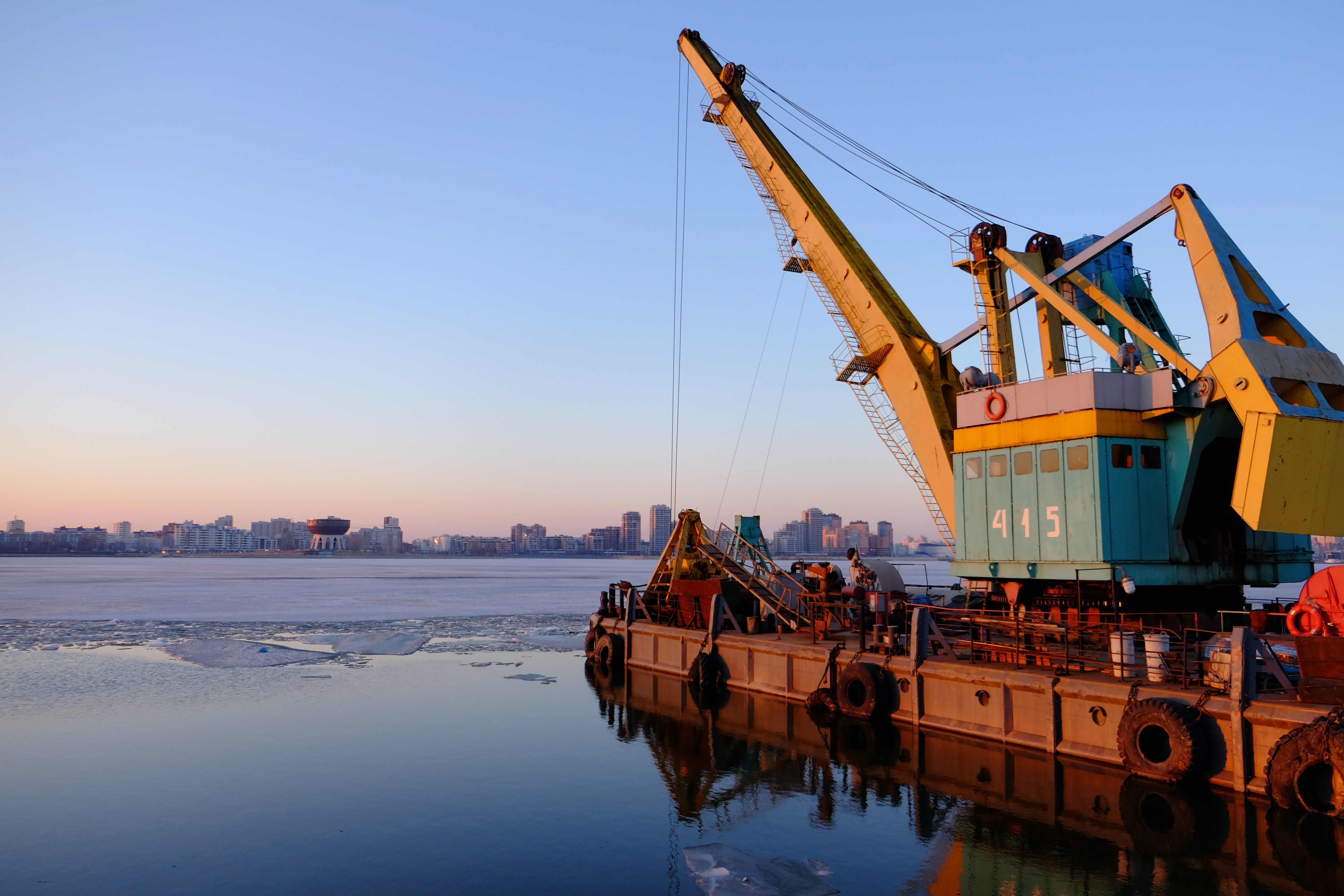Those who oppose the Jones Act claim it causes increased costs for local businesses and damages the U.S. shipping industry.
Working at sea can be difficult and often dangerous. The Jones Act provides essential employee protections for merchant sailors and other sea-faring workers. Many expect to rely on it if anything happens away from land.
However, in light of the Seacor Power tragedy, legal reform or an appeal may be on the way. This could have lasting effects, as the Jones Act shields workers in hazardous occupations where state laws, such as workers’ compensation, typically do not apply. Any changes to the Jones Act could affect the 650,000 Americans employed in the U.S. maritime industry.
The Seacor Power Tragedy
Owned by SEACOR Marine Holdings Inc., Seacor Power is a lift boat with legs that extend to the ocean floor. This allows the vessel to transform into an offshore platform. These types of vessels are typically used by gas and oil companies.
On April 13th, 2021, the Seacor Power capsized south of Port Fourchon, Louisiana. Nineteen crewmen were on board at the time. Only six men were successfully rescued. Six crewmen have been confirmed dead, and seven remain missing.
On April 19th, the U.S. Coast Guard called off their search and rescue efforts. Even though less than a week had passed, they presumed the missing men could not have survived. Unfortunately, this would bring the total death toll to 13.
Ensuing Lawsuits
Survivors and families of deceased or missing crew members have filed multi-million dollar lawsuits following the Seacor Power tragedy. For example, Dylan Daspit’s widow and Jay Guevara’s fiance filed lawsuits against SEACOR Marine Holdings Inc., Seacor Liftboats, and Talos Energy. They claimed these companies put profits ahead of human lives.
The family of Ernest J. Williams also filed a personal injury and wrongful death lawsuit against SEACOR Marine Holdings Inc., Seacor Liftboats, Talos Energy, and the lift boat’s manufacturer SEMCO LLC. They allege the companies completely neglected the crew’s safety by sailing into inclement weather.
On June 2nd, 2021, Seacor Marine Holdings Inc. filed a federal lawsuit in New Orleans to limit its liability to $5.7 million. This is far less than the $15 million they have to pay to DonJon Smit, the firm that performed the dive search, rescue operations, fuel removal, and vessel salvage. Their lawsuit cites maritime law from 1851 to cap payouts to survivors and family members after the Titanic disaster.
Understanding the Jones Act
Under 46 U.S. Code §30104, the Jones Act targets maritime commerce issues. This includes the transportation of either people or cargo. Injured sailors are also granted additional rights, such as the ability to pursue damages from:
● Other crew members
● The captain
● The ship’s owner
The Jones Act is so important for American sailors because working conditions can be risky. Offshore workers are exposed to hazardous materials and an increased risk of injury or illness. However, workers’ compensation laws only protect those who work on the land.

Perhaps the biggest impact of the Jones Act is the requirement for goods shipped between U.S. ports to be conveyed on vessels built, owned, and run by citizens or permanent residents of the United States. This protects U.S. jobs by restricting the ships that can legally transport goods to United States ports. As a result, the cost of shipping to non-continental U.S. states or territories may be higher.
How the Jones Act Differs From Workers’ Compensation
Both the Jones Act and workers’ compensation insurance offer injured workers a way to make ends meet while recovering from injuries sustained in workplace accidents. However, there are considerable differences between the two employee protections. For example, workers’ comp is regulated at a state level, while the federal government regulates the Jones Act.
Workers’ compensation protects businesses from excessive litigation. People covered by workers’ comp insurance cannot sue their employers. However, the Jones Act allows injured workers to sue their employers or other liable parties.
The other main difference is that workers’ compensation does not put the proof of fault on the injured worker. They simply have to prove their injury results from a worksite accident. Plaintiffs in a Jones Act lawsuit must prove negligence. If you need legal assistance with an injury case, have an Alexandria accident lawyer review your case and explain all your legal options regarding compensation and recovery.
Who Is Eligible to File a Jones Act Lawsuit?
To qualify for a lawsuit under the Jones Act, a crew member must have spent at least 30% of their career on a ship. The plaintiff must prove their injury was caused by negligence from their employer, a crew member, or the vessel’s owner. Additionally, they must prove that the ship where their injury was sustained was not seaworthy.
Under the Jones Act, injured employees may recover compensation for:
● Medical treatment
● Lost earnings
● Living expenses
● Pain and suffering
Suppose a maritime worker is so severely injured that returning to work is not an option. In that case, they may be able to recover a larger amount to compensate for future wages and medical needs. Surviving family members can also sue for wrongful death.
Opponents of the Jones Act
Those who oppose the Jones Act claim it causes increased costs for local businesses and damages the U.S. shipping industry. In addition, distant states like Hawaii and Alaska and the territories of Puerto Rico and Guam do not have many direct shipping routes within the constraints of the Jones Act.
For example, Kōloa Rum, a company based in Honolulu, exports to other countries. Operating under the Jones Act does not allow a direct route from Hawaii to Australia. So shipments would have to travel to the U.S. west coast, transfer to foreign ships, then to Australia. The Jones Act workarounds make business operations more complicated and more expensive.
Over the years, the Jones Act has had temporary waivers for emergencies. For example, in 2017, Hurricane Maria hit Puerto Rico, and the Jones Act was waived for ten days to allow ships to deliver necessary relief and supplies. However, the Jones Act has provided a means of relief for the many offshore workers, and a permanent repeal or alternative legislature has yet to be enacted.
What Would a Repeal of the Jones Act Mean?
A repeal of the Jones Act would mean two big changes. First, maritime workers may face difficulties trying to sue their employers after workplace accidents. Second, foreign ships would be allowed in U.S. inland waters.
The Effects on U.S. Workers
Repealing the Jones Act could complicate an injured worker’s ability to pursue damages. If maritime workers lose this protective legislation, they could struggle to hold large corporations accountable for acts of negligence.
Injured workers may also find it challenging to pursue a lawsuit if their employer is not a U.S. entity. While it is possible to sue someone from another country, injured workers may have more success with a lawyer from the same country who understands their laws and regulations.
An Increase in Foreign Ships
In 1981, the Reagan administration abolished the construction differential subsidy granted to domestic shipyards. As a result, the U.S. now only constructs about 1% of the world’s commercial ships, and most of them are used for Jones Act routes. If the Jones Act is lifted, the U.S. may completely cease the construction of new vessels.
Supporters of the act argue this could lead to national security concerns. For example, in times of war, the U.S. Navy may depend on the availability of commercial ships to supplement their reserve. A repeal of the Jones Act could mean necessary seaworthy vessels are not available.
Other safety concerns stem from the loss of control the U.S. would experience. The United States has high safety standards, and all U.S. vessels must meet those rigid requirements. Removing the Jones Act would allow ships with subpar safety standards onto U.S. interior waterways. The U.S. would have to enact another way to monitor the safety of foreign vessels to protect offshore U.S. workers.


Join the conversation!